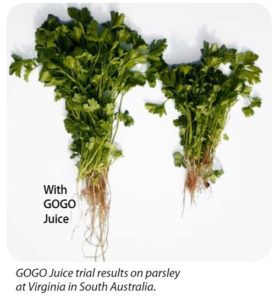Along with bacteria, fungi are important as decomposers in the soil food web. They convert hard-to-digest organic material into forms that other organisms can use. Fungal hyphae physically bind soil particles together, creating stable aggregates that help increase water infiltration and soil water-holding capacity.
Fungi prefer living and growing in dry conditions, however these conditions are not ideal for bacteria, as they like a bit more moisture. However new research indicates that a number of soil fungi can transfer water, carbon and nitrogen to certain bacteria in order to help them survive in dry conditions.
So how is this important for soil and plant health? We know that bacteria and fungi work together to not only cycle nutrients for plants to use, but they can also actively protect plants from attack by pathogens. This protection is critical at times of plant stress when they are more susceptible to attack, so in dry conditions plants need all the help they can get.
One type of bacteria which can be fed by fungi are called Bacillus species. These bacteria form spores to survive harsh environments, and the fungi wake up these spores by providing them with water and nutrients. The important thing about Bacillus species is that they are known not only for the role they play in phosphate liberation and the like, but they are also biological control agents, and as such are involved in protecting plants from pathogen attack.
So having a diverse fungal and bacterial community acts as an insurance policy for your plants. This is why using a product such as GOGO Juice which contains a huge diversity of microbes will give you the best chance of success. GOGO Juice is literally teeming with beneficial micro-biology and is essentially a probiotic for your soil and plants. It combines the “catalystic” power of billions of beneficial bacteria with the well-documented benefits of applying kelp, seaweed, fish, coal and lucerne.
Here are some more goodies in GOGO Juice:
- Pseudomonas – aid in breaking down organic materials
- Bacillus – aid in unlocking phosphorus
- Azotobacter – aid in nitrogen fixation
- Alginates – aid in moisture retention, and consequently in the plant’s ability to withstand heat stress and frost.
- Humic/Fulvic Acid – increases nutrient uptake, drought tolerance and seed germination
- Amino Acids – building blocks for proteins; important in the metabolic process
- Vitamins – B1, B2, B3, B6, C, E, Choline and Pantotene
- Carotene – natural growth regulators
- Cytokinins – promote cell division in plant roots and shoots
- Auxins – essential for plant body development, and co-ordinates many growth and behavioural processes in a plant’s life cycle
- Triacontanol – growth regulators responsible for promoting root growth and bud production


